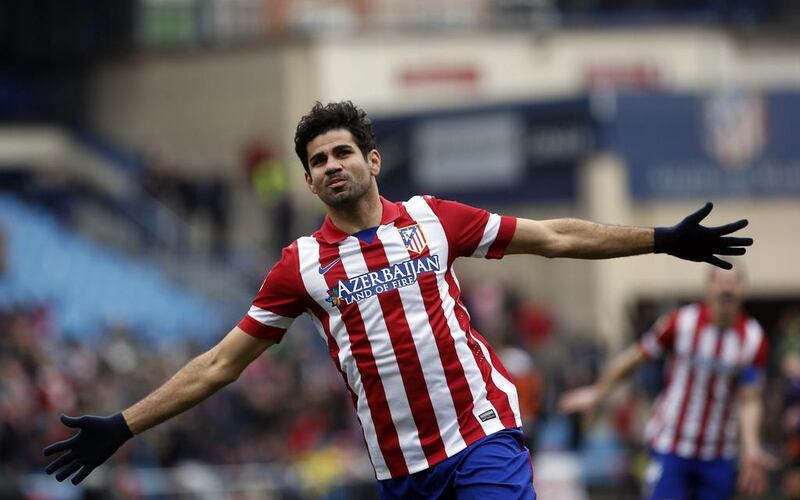New AC Milan coach Clarence Seedorf faces a daunting debut on the bench in the Uefa Champions League, a competition he won four times as a player with Ajax, Real Madrid and twice with Milan.
Atletico Madrid, Wednesday night’s opponents at San Siro, have been football’s surprise team this season. They are matching Barcelona and Real Madrid for points at the top of the Primera Liga and their form has extended to Europe, where they were the second team to qualify for the Champions League knock-out stage.
Milan would have been favourites to beat Atletico at any point in Seedorf’s distinguished playing career. Not now.
Striker Diego Costa presents Seedorf’s biggest problem.
The Brazilian, who has chosen to represent Spain at international level, has the highest conversion rate in La Liga, with 38.8 per cent of his shots leading to goals. He has been a phenomenon this season, with 21 league goals, plus four more in the Champions League group stage.
He also has the best shot accuracy: 71 per cent of his strikes are on target, ahead of Lionel Messi (70) and Cristiano Ronaldo (59).
Costa, 25, has sprung to international attention since he replaced the outgoing Radamel Falcao as Atletico’s primary front man, switching positions from out wide. Atletico feared the team would be badly depleted without Falcao, but Costa has filled in better than anyone expected, spearheading an epic season.
This is only his second term as a regular starter for Atletico – he made his Champions League debut in September with two goals against Austria Vienna. He has worked hard to get his rewards and nobody can say he has had it easy.
“It’s been difficult, with loans, operations and rehabilitation,” Costa said of his career, “but life is a constant lesson. Sometimes you don’t have the same touch of inspiration as other days, but if I give it everything I will reap the rewards.”
A street footballer until 16, Costa was spotted playing in Brazil and moved to Portugal with Braga at 18, where he played in the club’s reserves. He was loaned out to second-division Penafiel, then sold to Atletico Madrid in 2007 – though until then, he stayed with Braga, where he made his first-team debut. Atletico loaned him to second-division Celta Vigo and then Albacete, before he was sold to Valladolid in 2009.
Atletico exercised a buy-back clause and he returned to the Calderon in 2010 as back-up to Diego Forlan.
“I’m surprised at how well he’s done,” Forlan said. “He’s been called a world-class player and I didn’t see that at Atletico. If he keeps going as he is, then it will be right to call him world-class.”
Atletico hoped he could replace the outgoing Forlan in 2011, but Costa suffered a serious knee injury in pre-season training. Another setback. When he recovered, he was loaned to Rayo Vallecano in 2012, where he excelled.
Finally, his efforts have helped his luck turn and he has many admirers, including Manchester United manager David Moyes, who watched him in person several times. Costa’s buy-out clause is €40 million (Dh202m).
Costa’s upper-body strength is a key factor in his ability to overcome opponents, but he is more than just a bully who barges past players. More than half of Costa’s goals have been assisted by Koke, with the latter stating how they talk after training about how they link up.
Coach Diego Simeone has been crucial to his development, too.
“He’s been important not only for me, but for the whole group,” said Costa, who has calmed his previously suspect temperament. “He’s changed our way of thinking. He asks us to get into every game as if it were the last one of our careers, demanding you to leave all you can on the pitch, always showing that there’s room for improvement. It wasn’t like this before his arrival.”
Costa also lauded Oscar Ortega, the team’s strength coach.
“Football needs to have this work, with more emphasis on the physical,” he said.
Costa’s game is physical, and it is up to Seedorf’s Milan to try to contain it on Wednesday.
sports@thenational.ae






